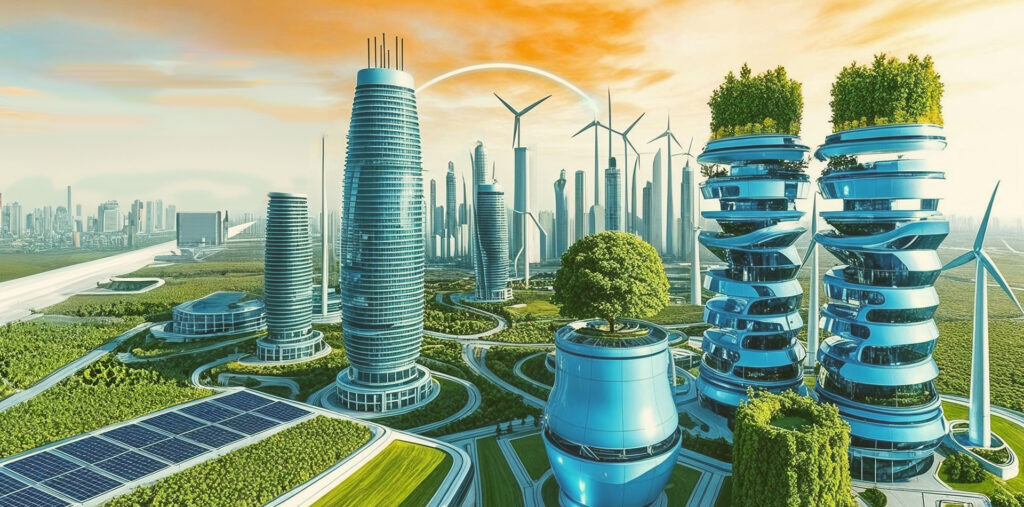
For decades, the conversation around net zero has been framed as a moral obligation – a necessary response to climate change and a duty to future generations. But the world is changing fast. And it’s time we shift the narrative: Net zero isn’t just about saving the planet. It’s also about saving the economy.
In fact, the pursuit of a low-carbon future may well become the defining economic imperative of the 21st century. Not because it’s fashionable, or even environmentally ethical – but because it’s the only way forward in an increasingly intelligent, hyper-efficient world.
Carbon Emissions: A Symptom of Systemic Inefficiency
At its core, carbon is a symptom: High emissions are not just bad for the planet – they are a red flag for waste, friction, and inefficiency in our systems and processes. Every ton of CO₂ is evidence of energy lost, value leaked, and potential unrealised.
In thermodynamic terms, high emissions reflect high entropy – disordered, inefficient systems that burn more than they build. The more optimised our systems become – the lower the emissions, the lower the entropy, and the more sustainable the economy. This is not just physics; it’s economics.
Artificial Superintelligence Will Choose Low-Carbon Economics
Geoffrey Hinton, who was awarded the 2024 Nobel Prize in Physics for his seminal AI research and its profound impact on science and society, thinks that humankind will achieve artificial superintelligence in the next 5-20 years; well before 2050 – the global target for net zero.
In a world that will be shaped by artificial superintelligence, the shift to low carbon becomes not just logical -it becomes inevitable. Super-intelligence, unburdened by emotion or politics, will optimise systems, processes and economies for longevity and maximum output with minimum input. And by that measure, low-carbon systems and economies will win – because they will be the most efficient, the most resilient, and the most scalable.
Countries and corporations that fail to transition will not be punished by climate change activists – they will simply be left behind.
The Next Big Thing: Smarter Systems that Use Less
Sir Demis Hassabis, founder of Google DeepMind and 2024 Nobel Laureate in Chemistry, led the development of AlphaFold – a ground breaking AI system that predicts the 3D structures of proteins by simulating how amino acid chains fold into their lowest-energy, most stable configurations. In essence, AlphaFold solved an energy minimisation problem that was previously thought to be intractable, unlocking one of the most fundamental mysteries of life. The economic impact of AlphaFold is spectacular: It will underpin a new trillion dollar bioeconomy.
Sir Demis remarked during a recent Cambridge University lecture: “I think of biology at its most fundamental level as an information processing system that is trying to resist entropy around it.” This isn’t just philosophy – it’s survival. Nature inherently moves toward order, balance, and low entropy – the precise conditions in which life can thrive.
So must we.
When we accept disorder in the systems we build – our workplaces, our buildings, our cities, our businesses- we accept decline. But if we follow nature’s principle – reduce entropy, reduce emissions, increase intelligence – we unlock not just environmental sustainability, but economic strength.
A New Net Zero Narrative
Let’s stop treating net zero like a burden we carry for the sake of future generations. It’s much more immediate than that.
Net zero is the gateway to:
- More efficient industries
- Smarter infrastructure
- Resilient supply chains
- Higher margins
- And a more secure place in an AI-shaped future.
It’s time to reframe net zero – not as a climate ideal, but as a strategic, economic necessity. Because in the near future, the best systems, the best-run companies, and the most prosperous nations will be those that operate at the highest intelligence per watt.
